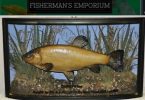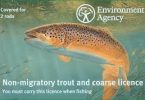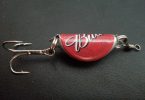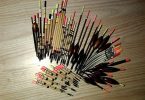Guidance notes prepared by
Dr Bruno Broughton, Fisheries Management Consultant
Angling-Based Opportunities
There are virtually no full-time jobs in angling itself, although there are occasionally some openings in industries that depend on the sport. For example, there may be some employment opportunities because:-
Fishing tackle shops require staff to help serve customers
Angling magazines need reporters and other staff
Tackle manufacturers, wholesalers and importers recruit warehouse personnel, drivers, and other personnel
Commercial fishery owners employ bailiffs (full and part-time)
Fish farmers employ manual workers
The qualifications and qualities required would be somewhat different in each case, although it would be fair to say that in these areas of employment academic qualifications would not need to be particularly high.
Further & Higher Education Courses
An extremely useful and increasingly popular means of developing a career based around angling is within the fields of fisheries and aquatics. Although several Universities offer academic qualifications in these and associated subject areas, vocational courses are delivered currently by just three colleges.
The courses offered are at 1st Diploma (1-year), National Diploma (2-year) & Higher National Diploma (2-year) levels, with eventual entry to a final Honours Degree.
The colleges that offer fisheries courses are:-
Brooksby College, Brooksby, Nr. Melton Mowbray, Leicestershire LE14 2LJ.
Tel: 01664 850850
Rodbaston College, Penkridge, Nr. Stafford, Staffordshire ST19 5PH.
Tel: 01785 712209
Sparsholt College, Nr. Winchester, Hampshire SO21 2NF.
Tel: 01962 776441.
The courses are full-time, but there are opportunities to attend for specific segments on a part-time basis. They open up a fairly wide range of employment opportunities. Certainly, the vocational and correspondence courses would help the better students gain employment as (amongst others):
Ø Fishery inspectors & fisheries officers, working for the Environment Agency and other government agencies
Ø Managers of commercial fisheries, fish farms and shops selling ornamental fish
Ø Angling journalists
Ø Fisheries consultants, advisors and field staff (employed or self-employed)
Ø Teachers and research workers
Correspondence Course
The most appropriate alternative would be the Training Scheme offered by the Institute of Fisheries Management (IFM), at either certificate or diploma level. Essentially, these are correspondence courses which lead to ‘industry-standard’ qualifications. Details are available from:-
Gary Jones (IFM Training Secretary), 31 Fernedene, Bradley Stoke, Bristol BS32 9DG.
Tel: 01454 624367 (day); 014544 613573 (evenings)
Copyright:
Strict copyright is retained by the author. No part of this document may be reproduced, stored in any retrieval system or transmitted in any form or by any means – electronic, mechanical, photocopying, recording or otherwise – without the expressed permission of the author.
These notes must be used for guidance only. They were prepared by:-
Dr Bruno Broughton B.Sc. (Hons), Ph.D., F.I.F.M.
Fisheries Management Consultant
(B.A.S.I.S. Identity No. 0/647/A/A)
Trenchard
Lower Bromstead Road
Moreton
Newport
Shropshire TF10 9DQ
Tel: 01952 691515; Fax: 01952 691316.
Email: bruno.broughton@virgin.net








